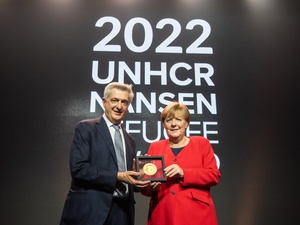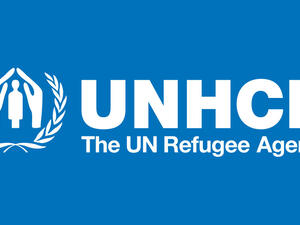UNHCR applauds Germany's proposal to modify immigration law
UNHCR applauds Germany's proposal to modify immigration law
Refugees caught in a sandstorm at Killi Faizo, a sign of the deteriorating weather conditions.
GENEVA, Nov. 9 (UNHCR) - The U.N. refugee agency Friday "warmly welcomed" the German government's decision to introduce a new immigration law making it possible for people persecuted by "non-state agents" such as rebels or militias to obtain protection under the 1951 refugee Convention.
The agency said that even a person who had visibly suffered extreme torture or been raped would not be considered a refugee in six European countries that excluded victims of non-state agent of persecution from refugee status if the torturer was not acting on behalf of the officially recognized government.
By the mid-1990s five countries in addition to Germany - France, Italy, Norway, Sweden, and Switzerland - were not granting refugee status to victims of persecution by agents not officially connected to any recognized government.
"Refugees coming from countries that have no functioning government, or whose government does not control the whole territory, were unable to receive refugee status even if they could prove persecution beyond all reasonable doubt," UNHCR said. In recent years these included Liberia, Somalia, Angola and Taliban-held areas of Afghanistan.
"UNHCR warmly welcomes the proposed change, which would bring an end to one of the most damaging anomalies in legislative practice in Europe," the agency statement said. "The proposed change to the law would bring Germany into line with virtually all other states that have signed the 1951 Convention."
The idea that victims of a so-called non-state agent of persecution could be excluded from refugee status found its way into the legal practice of several European countries in the years following adoption of the Convention.
Sweden and Norway formally changed their regulations in the late 1990s, while Italy and France have gradually adjusted their practice to include victims of non-state agent persecution. Switzerland has said it is considering a change in its legislation.
"UNHCR's position, and that of virtually all states outside of Europe, has always been that under the 1951 Convention, the key factor in a refugee claim is the risk of persecution, not the identity of the persecutor," UNHCR said.









